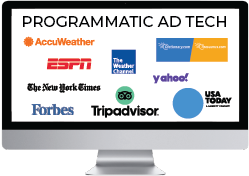What Associations Need To Know About Unrelated Business Income Tax (UBIT)
Navigating UBIT: A Guide for Association Executives
Navigating the complexities of Unrelated Business Income Tax (UBIT) presents a unique challenge for association executives. As legislation evolves and IRS guidelines shift, staying ahead is not just important—it’s essential. This guide merges crucial information with common inquiries to demystify UBIT, tailored to the strategic needs of association leadership.
Understanding UBIT: The Essentials
How Do We Determine UBIT Applicability?
UBIT targets income from activities that are:
1) trade or business operations,
2) conducted with regularity, and
3) not directly linked to your association’s tax-exempt purpose. Identifying whether your revenue streams fall under UBIT is the first step towards compliance and strategic financial planning.
Leveraging Exclusions and Exceptions
Maximizing UBIT Exemptions:
Several pathways exist to mitigate UBIT exposure. Key exemptions include income from qualified sponsorship payments, royalties, and specific trade show activities, alongside dividends and certain rental incomes. Navigating these can significantly influence your association’s revenue strategy while ensuring adherence to regulatory standards.
Adjusting to Recent Legislative Changes
The Impact of Siloing Requirements:
The Tax Cuts and Jobs Act introduced the requirement to account for gains and losses from each unrelated business activity separately. This shift can potentially elevate tax liabilities for associations, underscoring the importance of understanding these changes and their implications for your financial and tax planning strategies.
Strategic UBIT Management
Strategies for Mitigating UBIT Liability:
Effective UBIT management incorporates:
- Rigorous monitoring and classification of income streams.
- Utilization of deductions and exclusions to minimize tax obligations.
- Consideration of taxable subsidiaries for certain activities.
- Keeping abreast of legislative and regulatory updates affecting UBIT.
The Role of Professional Guidance
Consulting with Tax Experts:
Given the intricacies of UBIT, seeking advice from tax professionals familiar with nonprofit tax law is advisable. Their expertise can offer critical insights into compliance strategies, legislative updates, and tailored advice to navigate the UBIT landscape effectively.
In Conclusion:
For association leaders, mastering UBIT is a dynamic, ongoing process that demands attention, strategic thinking, and proactive management. By staying informed, leveraging available tax strategies, and seeking expert advice, you can steer your organization through UBIT challenges, ensuring compliance and optimizing your financial approach in the face of evolving tax landscapes.







